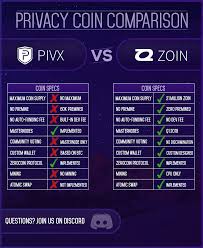
Breaking News
 2 Hours of Retro Sci-Fi Christmas Songs | Atomic-Age Christmas at a Snowy Ski Resort
2 Hours of Retro Sci-Fi Christmas Songs | Atomic-Age Christmas at a Snowy Ski Resort
 Alternative Ways to Buy Farmland
Alternative Ways to Buy Farmland
 LED lights are DEVASTATING our bodies, here's why | Redacted w Clayton Morris
LED lights are DEVASTATING our bodies, here's why | Redacted w Clayton Morris
Top Tech News
 Travel gadget promises to dry and iron your clothes – totally hands-free
Travel gadget promises to dry and iron your clothes – totally hands-free
 Perfect Aircrete, Kitchen Ingredients.
Perfect Aircrete, Kitchen Ingredients.
 Futuristic pixel-raising display lets you feel what's onscreen
Futuristic pixel-raising display lets you feel what's onscreen
 Cutting-Edge Facility Generates Pure Water and Hydrogen Fuel from Seawater for Mere Pennies
Cutting-Edge Facility Generates Pure Water and Hydrogen Fuel from Seawater for Mere Pennies
 This tiny dev board is packed with features for ambitious makers
This tiny dev board is packed with features for ambitious makers
 Scientists Discover Gel to Regrow Tooth Enamel
Scientists Discover Gel to Regrow Tooth Enamel
 Vitamin C and Dandelion Root Killing Cancer Cells -- as Former CDC Director Calls for COVID-19...
Vitamin C and Dandelion Root Killing Cancer Cells -- as Former CDC Director Calls for COVID-19...
 Galactic Brain: US firm plans space-based data centers, power grid to challenge China
Galactic Brain: US firm plans space-based data centers, power grid to challenge China
 A microbial cleanup for glyphosate just earned a patent. Here's why that matters
A microbial cleanup for glyphosate just earned a patent. Here's why that matters
 Japan Breaks Internet Speed Record with 5 Million Times Faster Data Transfer
Japan Breaks Internet Speed Record with 5 Million Times Faster Data Transfer
Most Privacy Coins Aren't That Private

Privacy coins are meant to be private. That's their raison d'être. Strip away the privacy, and they simply become altcoins, and dangerous ones at that, with the potential to deanonymize their users and expose their secrets. A number of recent reports have cast doubt on the privacy features offered by coins such as zcash and monero.
There's Safety in Numbers
Zcash is a controversial coin for a number of reasons such as its "founders reward" that sees 20% of all coins mined in the first four years go to stakeholders. The technology that enables zcash private transactions, zk-Snarks, is widely used by privacy coins within the same family such as zclassic, zencash, and bitcoin private. The trouble with zcash, as far as privacy advocates are concerned, is that shielded (i.e private) transactions aren't enabled by default. In fact, 85% of all zcash transactions are public, and some zcash wallets don't even support private transactions.

 $100 SILVER CONFIRMED?
$100 SILVER CONFIRMED?

